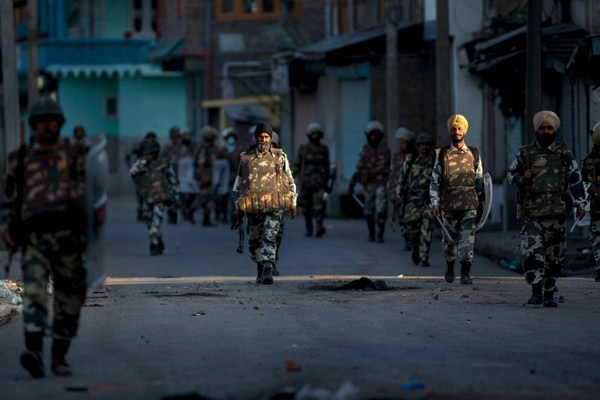Throughout the month of July, a series of violent clashes in Kashmir between protesters and Indian security forces left more than 50 Kashmiris dead and more than 5,000 injured. In an email interview, Anit Mukherjee, an assistant professor in the South Asia Programme at the S. Rajaratnam School of International Studies (RSIS), NTU, Singapore, discusses the Indian military’s domestic security role and civil-military relations.
WPR: What role does the Indian military play in domestic security, including the Kashmir conflict and the Naxalite insurgency?
Anit Mukherjee: The Indian military has historically played an important role in countering domestic insurgencies and separatist movements. In northeast India, it has been countering insurgent groups at various times in almost all the region’s states since 1956. In Kashmir, the Indian army has been countering the insurgent movement since 1990. While doing so, it has raised a specialized counterinsurgency force, called the Rashtriya Rifles. In more recent times, however, acknowledging the diminished nature of the various insurgencies, the army has tried to move toward more of a supporting role for state police and paramilitary forces, which it would like to see play a more active part. These efforts have had mixed success, as some of the state police forces have been more forthcoming and successful than others.

